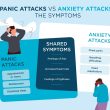Featured
Unlocking the Healing Power of Acupuncture in Edmonton: A Comprehensive Guide
Tips and Tricks of How to Win at Snakes and Ladders
The Ultimate Guide to Managing Anxiety and Panic Attacks
Tracking Your Mileage for Free: The Top 5 Apps You Need to Download Now
The Ultimate Guide to Hidden Spy Apps for Android
The Power of Gaming Logos Creating a Lasting Visual Identity
Best Quotes
Greetings
Unlocking the Healing Power of Acupuncture in Edmonton: A Comprehensive Guide
Tips and Tricks of How to Win at Snakes and Ladders
The Ultimate Guide to Managing Anxiety and Panic Attacks
Tracking Your Mileage for Free: The Top 5 Apps You Need to Download Now
The Ultimate Guide to Hidden Spy Apps for Android
The Power of Gaming Logos Creating a Lasting Visual Identity
Wishes
Unlocking the Healing Power of Acupuncture in Edmonton: A Comprehensive Guide
Acupuncture is a traditional Chinese medicine practice that has gained popularity in Edmonton and around the world. It involves the insertion of thin needles into specific points on the body to stimulate energy flow and promote healing. While it may seem like a new trend, acupuncture has been practiced for thousands of years and has […]

















